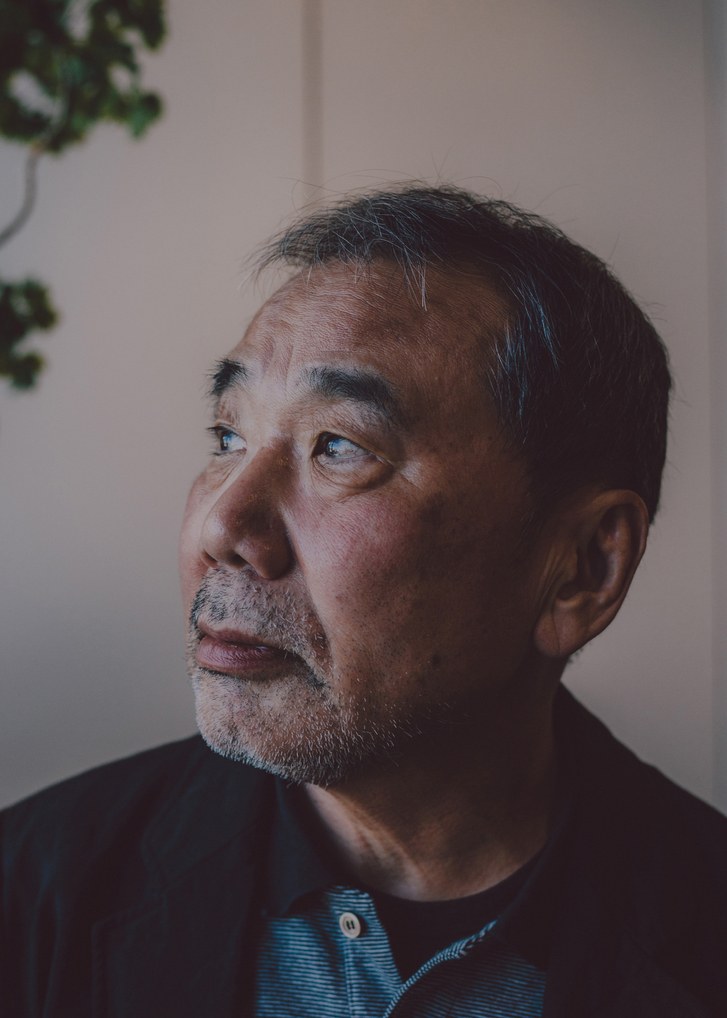
Born: Not Found
Died: Not Found
Region: Not Found
Address: Not Found
Biography:
Influences Franz Kafka, Fyodor Dostoevsky, Francis Scott Fitzgerald, Salinger, Raymond Carver, Kurt Vonnegut, Richard Brautigan, Jack Kerouac, Raymond Chandler, Stephen King, John Irving (less) Murakami Haruki (Japanese: 村上 春樹) is a popular contemporary Japanese writer and translator. His work has been described as 'easily accessible, yet profoundly complex'. He can be located on Facebook at: https://www.facebook.com/harukimuraka... Since childhood, Murakami has been heavily influenced by Western culture, particularly Western music and literature. He grew up reading a range of works by American writers, such as Kurt Vonnegut and Richard Brautigan, and he is often distinguished from other Japanese writers by his Western influences. Murakami studied drama at Waseda University in Tokyo, where he met his wife, Yoko. His first job was at a record store, which is where one of his main characters, Toru Watanabe in Norwegian Wood, works. Shortly before finishing his studies, Murakami opened the coffeehouse 'Peter Cat' which was a jazz bar in the evening in Kokubunji, Tokyo with his wife. Many of his novels have themes and titles that invoke classical music, such as the three books making up The Wind-Up Bird Chronicle: The Thieving Magpie (after Rossini's opera), Bird as Prophet (after a piano piece by Robert Schumann usually known in English as The Prophet Bird), and The Bird-Catcher (a character in Mozart's opera The Magic Flute). Some of his novels take their titles from songs: Dance, Dance, Dance (after The Dells' song, although it is widely thought it was titled after the Beach Boys tune), Norwegian Wood (after The Beatles' song) and South of the Border, West of the Sun (the first part being the title of a song by Nat King Cole).
Believe it or not, in a way, we have baseball to thank for Murakami’s career; he was inspired to write a novel while at a game one April afternoon. “I had the sudden notion that ‘perhaps I too can write a novel,’” he revealed in an interview posted on his website. “I don’t know why. I think it was a so-called epiphany.” He started writing that night.
Before becoming the award-winning writer we know today, Murakami and his wife ran a small jazz bar for seven years. He told the Guardian in 2011 that it was called Peter Cat.
When it came to starting his first novel, Hear the Wind Sing, Murakami tried English for the opening pages, “just to hear how they sounded,” he told the New Yorker in 2013. He later further discussed the experience in a 2015 Lit Hub interview, revealing that his “ability in English composition didn’t amount to much.” Still, it was a useful exercise.
Murakami wasn’t an immediate hit among English speakers because his early books weren’t translated for them. By the time English-speaking fans started clamoring for his work, he didn’t like the idea of them reading his first novels. It wasn’t until 2015 that they were published in the United States.
Murakami has done a lot of translation over the years, but he isn’t interested in translating his own novels to English. In his 2011 Guardian interview, he revealed that he’ll convert books written in English to Japanese but doesn’t do the reverse. He has regular translators, and the author doesn’t do more than debate the occasional word with them.
In an essay on translation, Murakami revealed that he made a goal for himself in his late 30s to translate The Great Gatsby by age 60. He hadn’t found a version out there that “satisfied” him, so he decided he’d do it himself.
“Unless I have to for some reason, I seldom reread my previous books (in Japanese), but I do sometimes reread the English translations,” he said in an interview on his website. “I find it enjoyable precisely because of the distance from the original text. In most cases I really enjoy reading these.”
When you’re a writer as skilled and successful as Murakami, your editor will apparently let you get away with sticking to your own schedule. “I don’t like deadlines,” he told the Guardian in a 2014 interview. “When it’s finished, it’s finished. But before then, it is not finished.”
In the same interview, Murakami described a first draft as “kind of torture.” Not surprisingly, he prefers the rest of the process because he likes to see his work “getting better and better and better.”
Product successfully Added!

